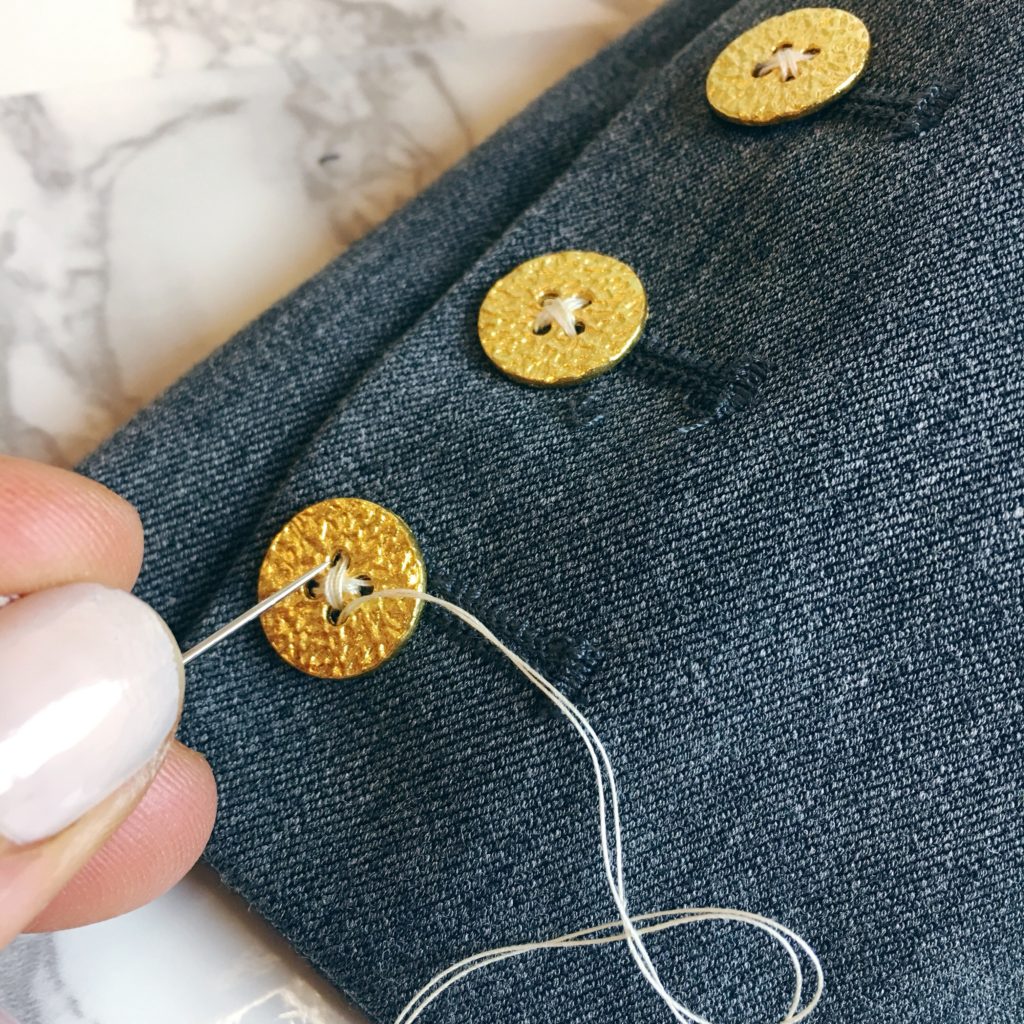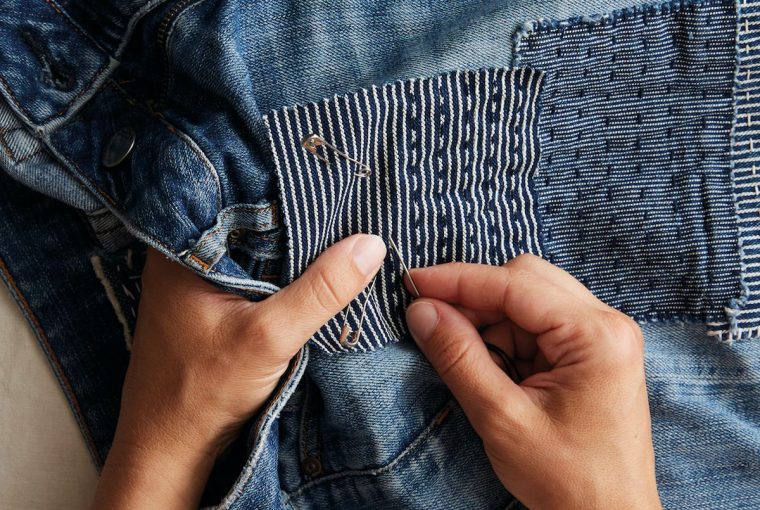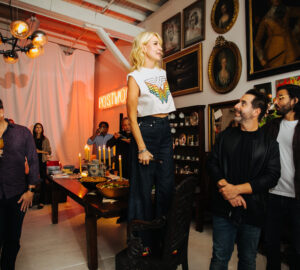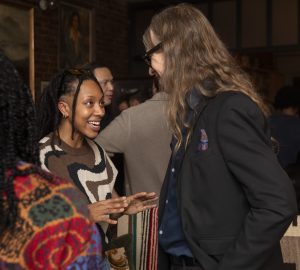It began, like many things do, online. Earlier this year, I was killing time on a dinosaur relic website (Facebook) and scrolled past a desperate call for help: a good friend had ripped her favourite pair of jeans to oblivion and was looking for somebody to help repair them. While I’m far from a qualified tailor, I did grow up with a seamstress mother and mending small tears or reattaching errant buttons is second nature to me. I decided to answer the call and offered up my middling skills to a worthy cause.
The hole in my friend’s jeans turned out to be more of a massive crater than a gentle rip and required the sartorial equivalent of a skin graft; I sourced a patch from a pair of raggedy denim shorts to reinforce the hole. I spent hours piercing tiny hand stitches to reconstruct the garment, but the labor felt anything but tedious. With each stab of the needle, I could feel something tender, perhaps love, pouring out of me and embedding itself into the garment.
Something about the process felt a bit like alchemy; the act of reanimating an inanimate object from effectively dead to alive was regenerative, both the garment and myself. I felt so energized by it that I put a call out via Instagram stories offering free clothing repairs to my friends and the requests flooded in. A university friend I hadn’t heard from in at least a decade reached out asking me to fix the holes in a shiny orange ski coat she’d had since she was a child; a fashionable osteopath dropped off a bag weighing at least ten pounds filled with tiny pairs of pants belonging to her son, all of which had ripped in the exact same place on the left knee; My hairdresser asked me to reattach the buttons on a blazer she had found at a church basement bazaar.

Immersing myself in work that provided no direct benefits for me was deeply moving. I began to recognize that I loved mending not necessarily because it took me away from my phone but because it imbued a sense of purposefulness into my life. Being able to utilise my skills to the benefit of those around me made me feel, well, useful. (In a 2013 survey conducted by the Harvard Business Review, 50% of respondents felt their job had no “meaning or significance.”) As a lifestyle journalist, I’m the media equivalent of a court jester. I write things to briefly entertain my audience, who then moves onto the next distraction.
Mending introduced a concept into my life that I am now referring to as “deep care.” Deep care is paying for a friend’s coffee without letting them say “I’ll get this next time.” Deep care is leaving a 50% tip. Deep care is driving someone without a vehicle to a faraway appointment. It’s performing a small, unexpected favour with no expectation of anything in return. I could have easily started charging for my services and turned it into a side hustle, but I suspect monetizing it would take away all joy from the act. Through mending for free, I’m able to live out my values which dictate that clothing is not disposable and should be worn as long as possible, as well as show my friends I care about them.
If the pandemic has taught us anything it’s that individualism is a flawed way of approaching the world; we are all responsible in one way or another for one another’s well-being. In the face of death, isolation, and misery, the importance of giving back to our communities has taken on a renewed significance. Some people give money, some volunteer their time, and others, paralyzed by choice, do nothing instead. Embracing the tenets of deep care allows you to benefit others without the expectation of changing the world: as long as you’re making one person’s life better in a small, measurable way, that’s enough. Figure out where your skills lie and donate them to serve your community. It doesn’t matter what you do, as long as you do something.



